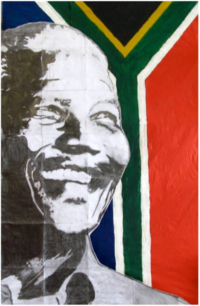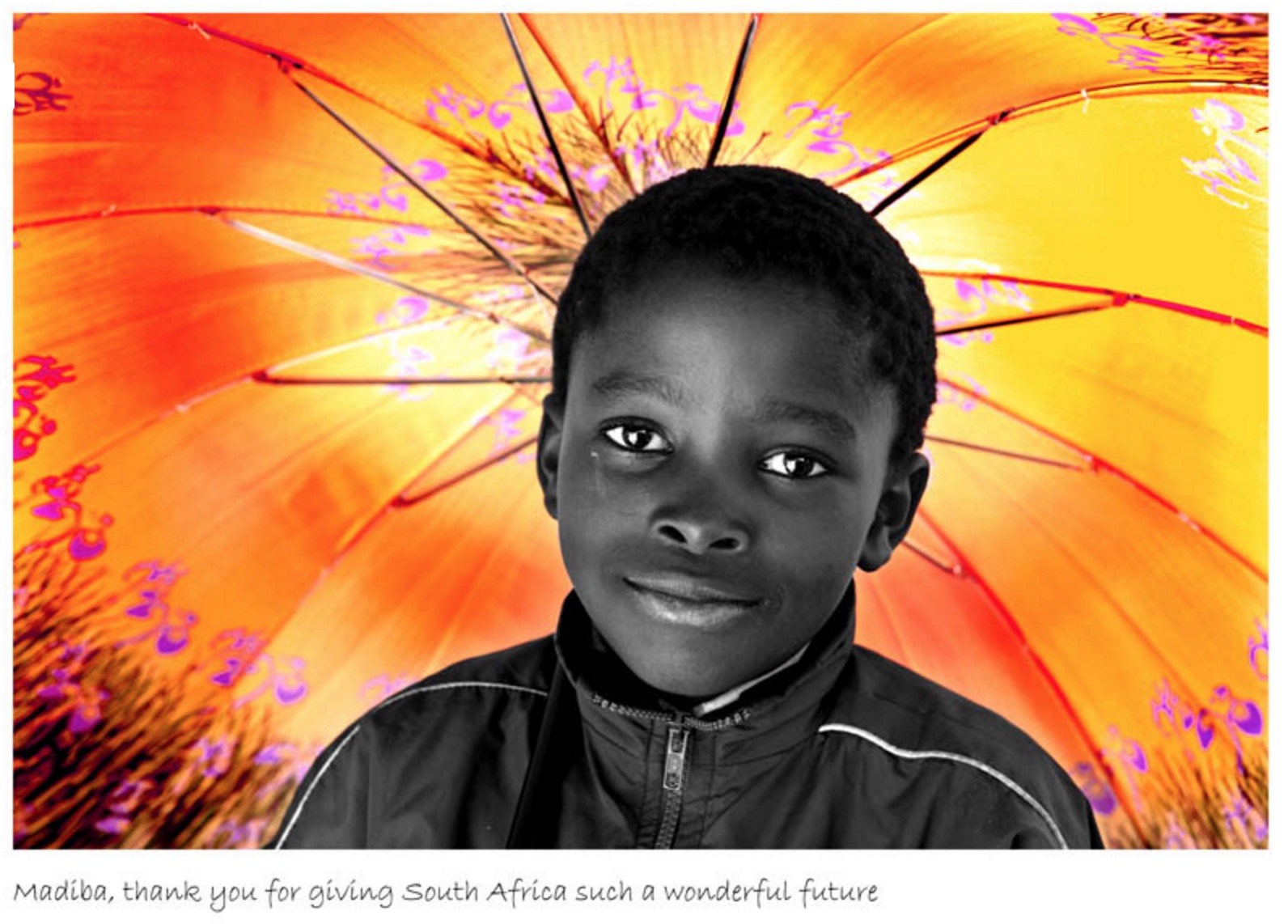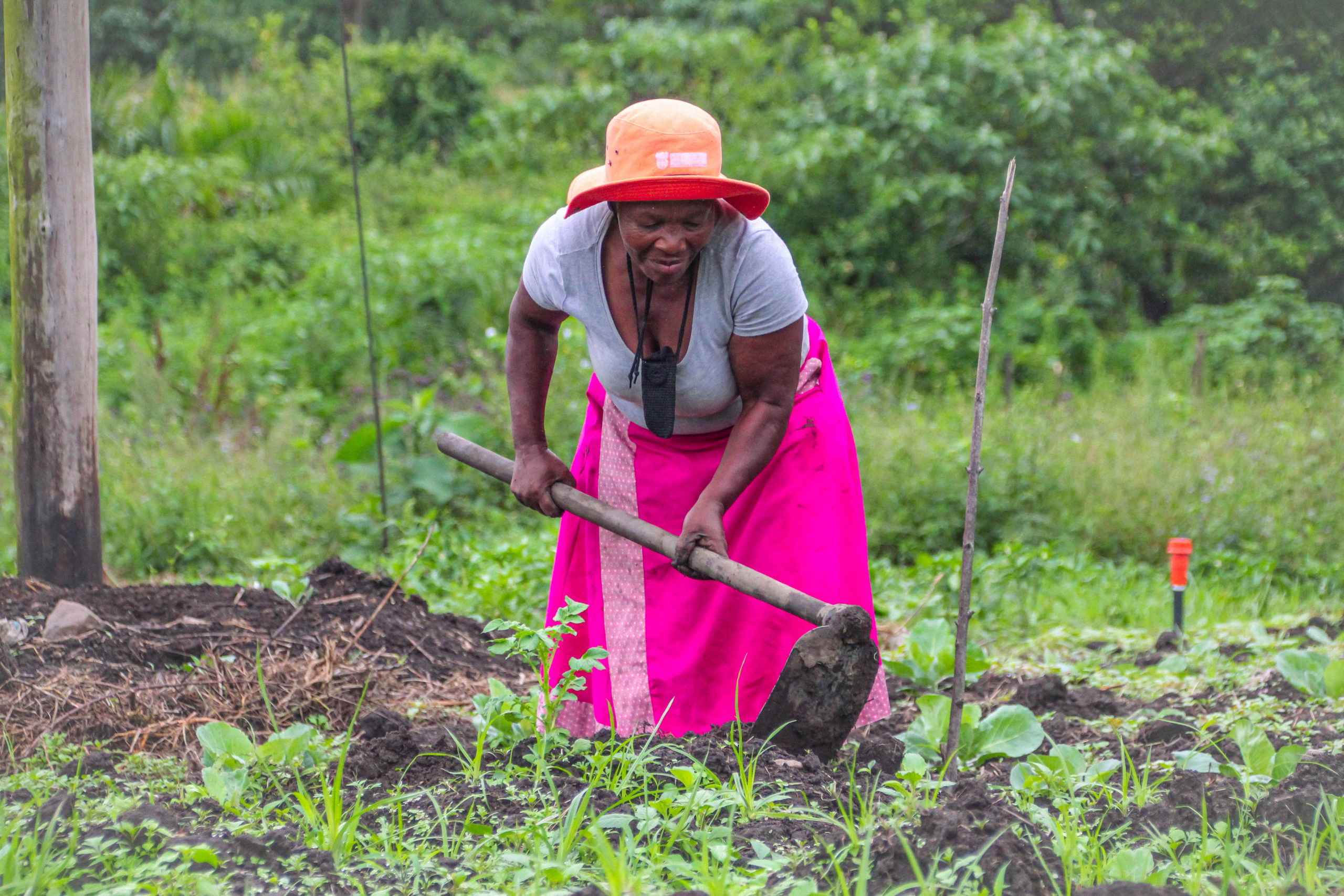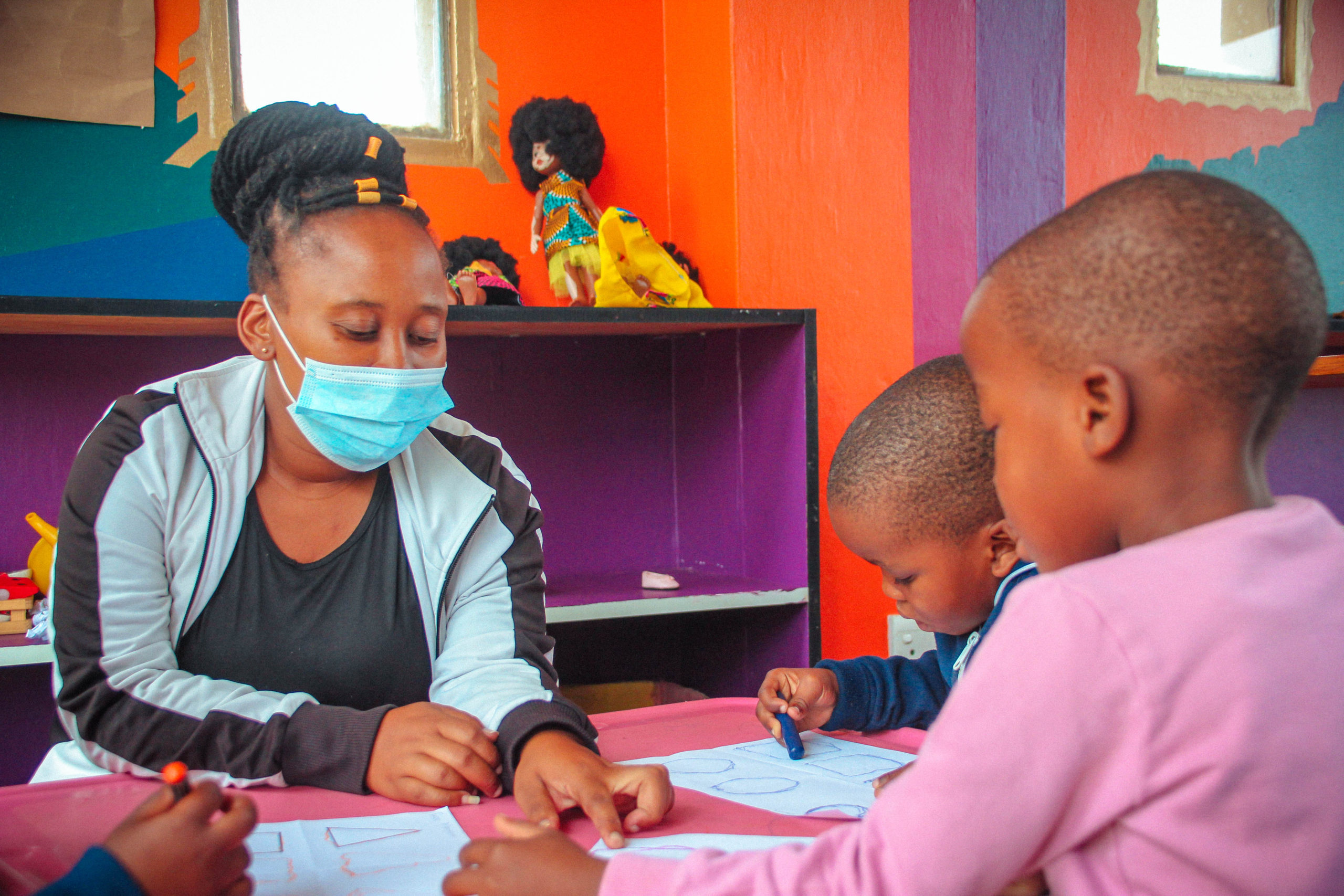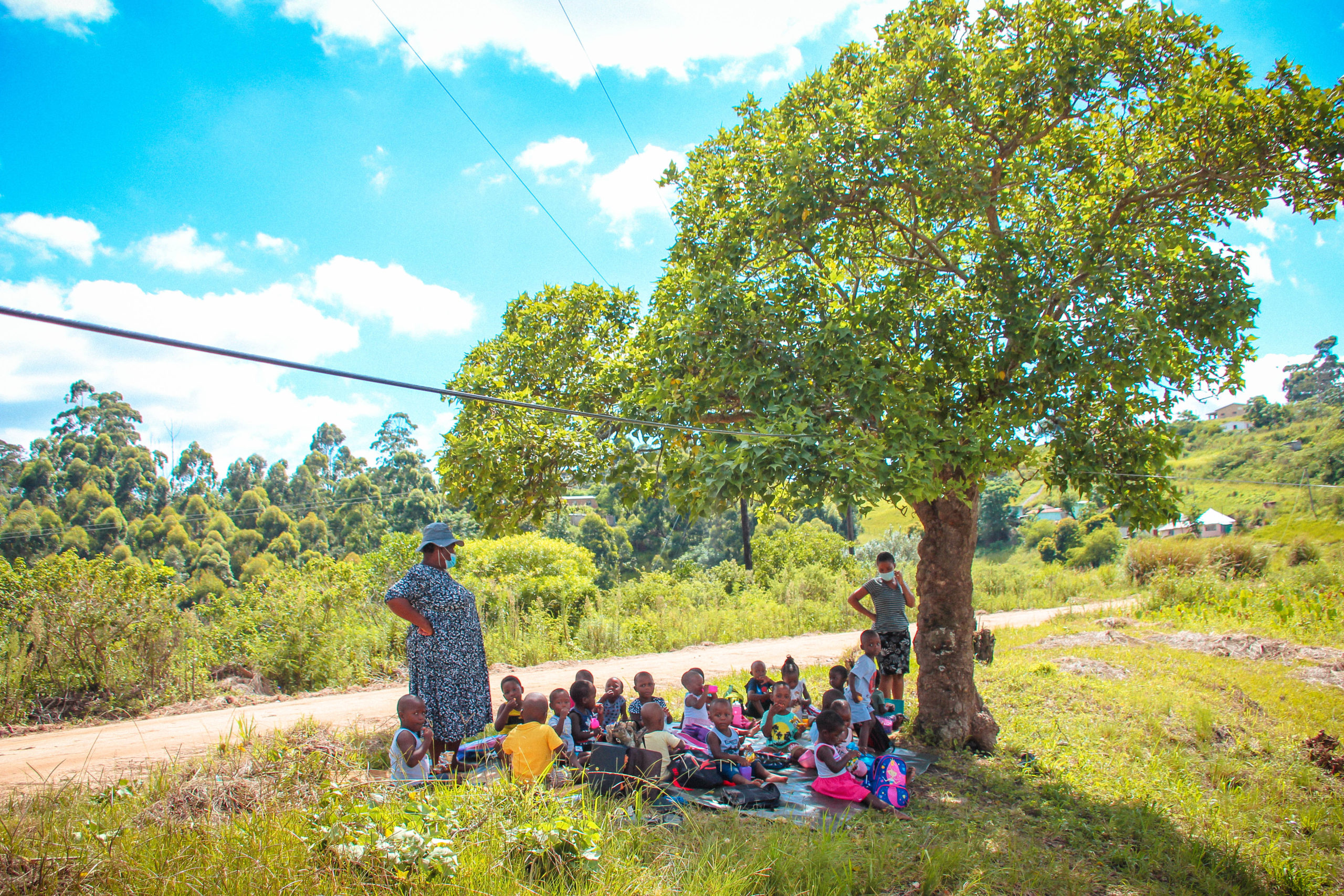On December 5th, 2013, Nelson Mandela passed away. His birthday, July 18, always a celebration in South Africa, has been termed Mandela Day. A day inspired by a call to action that Nelson Mandela made in 2008, to the next generation to take on the social injustices of the world. As stated on the Mandela Day website, “it is more than a celebration of Madiba’s life and legacy. It is a global movement to honor his life’s work and act to change the world for the better”.
Each year on this day people across South Africa and the world commit to helping others and complete a day of service. In previous years, the learners at Thanda have participated by helping to clean up the high school, plant trees and pick up garbage from the roads.
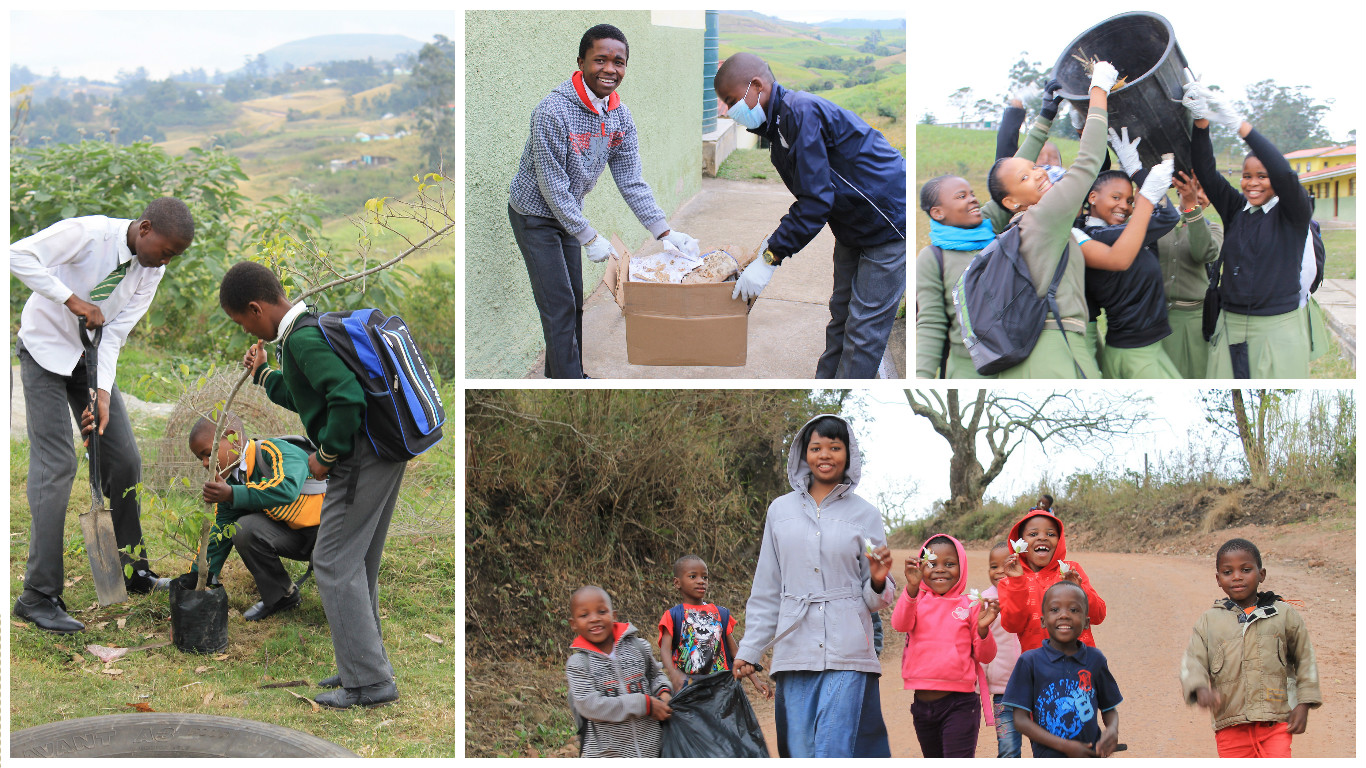
In the months leading up to Mandela’s death, many were concerned what would happen when he was gone, and if his example would live on. Though gone, Madiba, is still present every day in South Africa. At Thanda, our model echoes what Mandela dedicated his life to.
In 2009, Richard Stengal (a co-author of Mandela’s Long Walk to Freedom) wrote a book entitled Mandela’s Way, a collection of 15 life lessons that he learned from Mandela. Mandela Day is about taking action. Below are some of the lessons Stengal outlined and how Thanda is taking action each day to exhibit Mandela’s legacy.
Lesson #1: Courage is not the absence of Fear. It’s learning to overcome it.
“Courage is the way we choose to be. It is an everyday activity – displaying in large ways and small…day in and day out resist[ing] giving in to fear and anxiety” (Stengal 29, 35)
By teaching critical thinking skills and building self-confidence, Thanda is helping kids to overcome their fears. They too can be courageous in their everyday lives, even if in small ways.
Lesson #7: See the good in others.
“He [Mandela] believes that just as pretending to be brave can lead to acts of real bravery, seeing the good in other people improves the chances that they will reveal their better selves”. (Stengal 117) At Thanda, we believe (and see) all our learners have the potential to break the cycle of poverty.
Mandela always “sought out the positive, the constructive. He chose to look past the negative”. (Stengal 118) Since the very beginning, Thanda’s founders have seen the positives of this community. Thanda’s programmes allow learners the opportunity to look beyond the obvious negatives of their situation and see all the potential in their futures.
Mandela also believed that “If you expect more of people, they often contribute more”. (Stengal 118) Learners and facilitators at Thanda are not treated as victims. We expect a lot from them and they rise to the challenge.
Lesson #11: It’s a long game.
Mandela was a “long distance thinker”. (Stengal 173) His regard to history was he “knew you had to try to influence it, but that any one individual did not make great difference”. (Stengal 174) We have to work together as a community. Thanda is not effective in a silo on its own. The community’s involvement and support is a crucial element to Thanda’s success thus far. We understand there will not be an immediate solution to the problems facing our community. It is going to be a long fight and that is what we are committed to. We are looking at long term effects and solutions, not band aid fixes.
Lesson #12: Love makes the difference.
Thanda means love and we’re making a difference. Through the Confident Me leg of our curriculum, children develop self-esteem to make healthy decisions and learn that respect and joint action are essential to creating a better world. Using characters from stories, they learn empathy skills and how to identify with others.
Lesson #14: It’s always both.
Mandela understood the complexity of issues and that “consistency for its own sake is a false virtue” (Stengal 209) – there is no black and white.
As stated in Stengal’s book, “for Mandela the answer is almost always both. It’s never a simple yes or no. He knows that the reason behind any action is rarely clear. There are no simple answers to the most difficult questions.” This sentiment tugs at the heart of Thanda’s curriculum: the exploration of grey areas and becoming comfortable with these complexities. Thanda’s programmes are teaching that it is okay to answer both.
Lesson #15: Find your own garden.
Mandela loved to garden. For him, it was a release from the everyday. “Each of us needs something away from the world that gives us pleasure and satisfaction, a place apart”. (Stengal 224) He said to Stengal once, “You must find your own garden”.
For many learners, Thanda is their garden.


